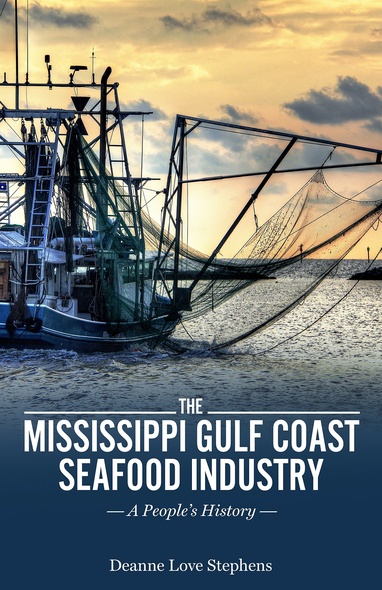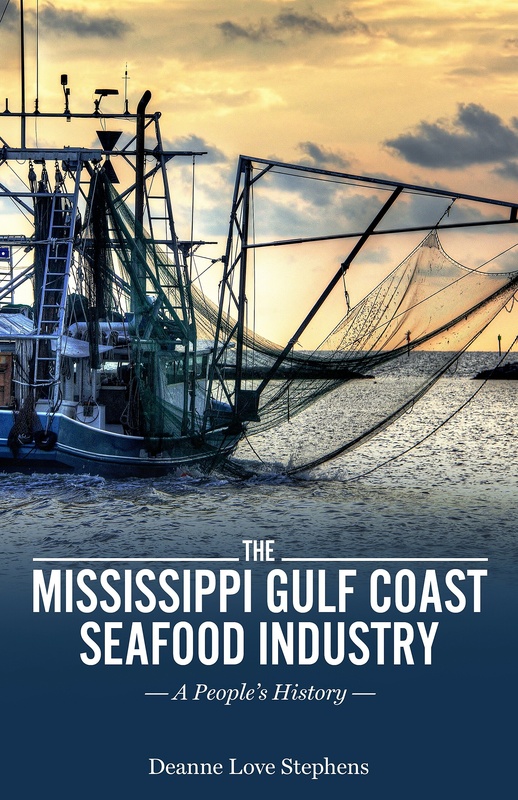Our shopping cart is currently down. To place an order, please contact our distributor, UTP Distribution, directly at utpbooks@utpress.utoronto.ca.

The Mississippi Gulf Coast Seafood Industry
A People's History
The seafood industry on the coast of Mississippi has attracted waves of immigrants and other workers—oftentimes folks who were either already acquainted with maritime livelihoods or those who quickly adapted to the resources of the region. For generations the industry has provided employment and sustenance to Coast peoples. Deanne Love Stephens tells their stories and identifies key populations who have worked this harvest. Oyster and shrimp processing were the most significant of these trades, and much of the Gulf Coast’s history follows these two delicacies. Harvesting, processing, and marketing oyster and shrimp products built the Mississippi seafood industry and powered the growth of the entire coastal region.
This book is the first to offer a broad view of the many ethnic groups and distinct populations who toiled in the oyster and shrimp industries. Relying heavily upon contemporary newspapers, oral histories, and interviews to create a rich picture of the industry and its workers, the author presents the history of laboring people who daily toiled in factories and often went unheard and unrecognized.
Stephens provides an overview of significant early developments and the beginnings of the industry, considering the development of railroad expansion, lighthouse construction, and ice technology. She covers significant state and federal legislation that both defined and protected marine resources, illustrating the depth of the industry’s importance as Mississippians wrestled with adequate protective measures to preserve oyster and shrimp resources throughout the nineteenth and twentieth centuries.
Stephens succeeds in documenting the history of workers in Mississippi’s seafood industry. She emphasizes diversity and resilience as she paints a heroic portrait of seafood workers who ‘continue to pursue the longheld traditions and love of the water’ as they engage in work that is both ‘vocation and lifestyle’ (p. 138). The book is thorough and engaging. It is appropriate for courses in southern history, environmental history, labor history, and U.S. history.
Stephens is a well-respected Mississippi author having published the book Plague Among the Magnolias: the 1878 Yellow Fever Epidemic in Mississippi (University Alabama Press, 2015) and many scholarly history articles about health issues and diseases in the deep south and specifically Mississippi. This work is well documented and illustrated, thoroughly researched, and recommended for public, high school, and college libraries.
The Mississippi Gulf Coast Seafood Industry is a unique and appealing work that gets inside its subject through stories of immigration and labor, while also covering business, technology, government, and global economics. Telling a people’s history that concentrates on Polish Americans, African Americans, Croatians, Cajuns, and Vietnamese,Deanne Love Stephens tells the story of the seafood industry through the lives of individuals, often in their own words. The book is thorough, humane, and well illustrated.
The Mississippi Gulf Coast Seafood Industry is the definitive work on the subject of coastal seafood culture and industry in Mississippi and will appeal to anyone interested in the topic.
In The Mississippi Gulf Coast Seafood Industry, Deanne Love Stephens has filled an important gap in the economic, industrial, and cultural history of Mississippi and the Gulf Coast. Meticulously researched and beautifully written, Stephens carefully collected the oral histories that made this book possible and wove them into a narrative of the diverse group of migrants and immigrants who built the seafood industry and changed the culture of the area and, in the process, adds significantly to the historiography.
The Mississippi Gulf Coast Seafood Industry: A People’s History adds to an overall understanding of how the Mississippi Coast came to be its twenty-first-century self. The Coast’s seafood story, in the past, has been told in bits and pieces, but with Deanne Love Stephens’s latest book, we get a broader understanding of how oysters and shrimp shaped a region that continues to lure diners and sports fishermen as well as to maintain a local fleet and farming experiments to keep seafood viable in challenging times. To appreciate the storytelling and history in this book, you don’t have to be a former shrimper like me. After all, seafood and its history are important to all of us who visit or call the Mississippi Coast home.
Deanne Love Stephens is professor of history at the University of Southern Mississippi. She is author of Plague Among the Magnolias: The 1878 Yellow Fever Epidemic in Mississippi.





